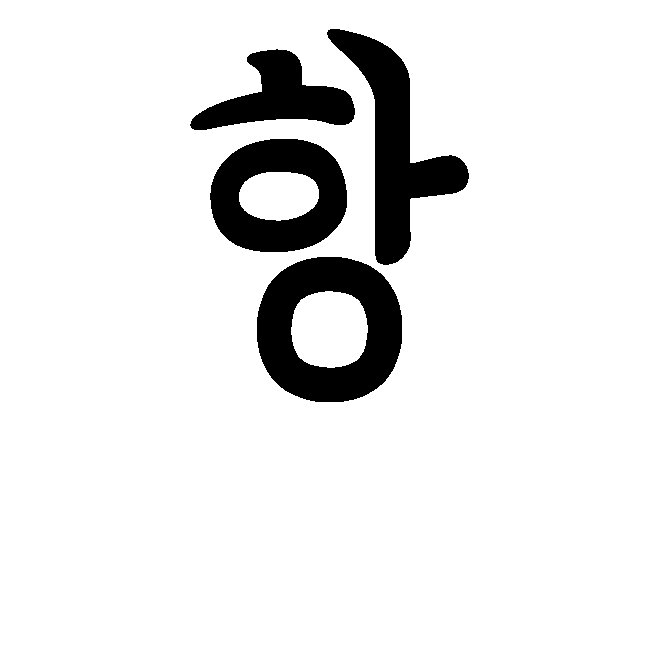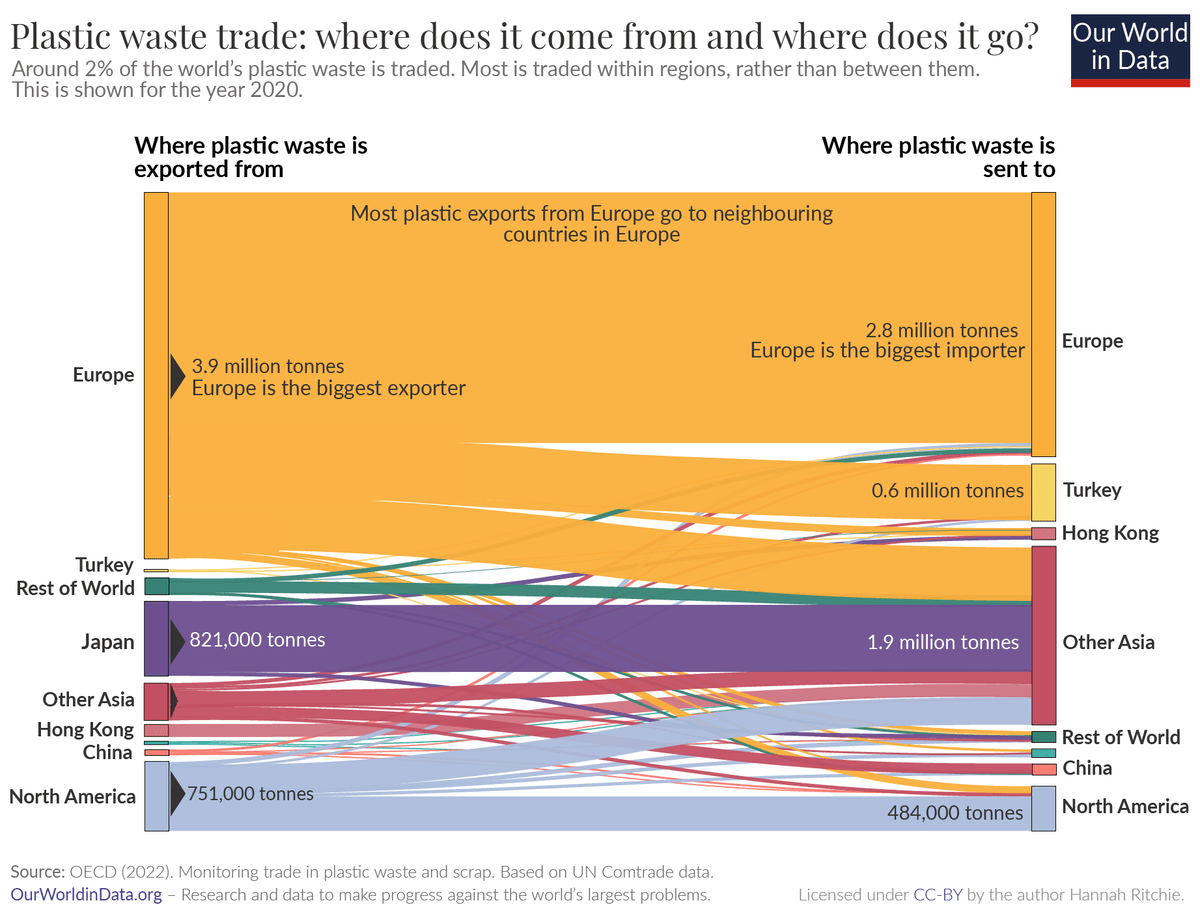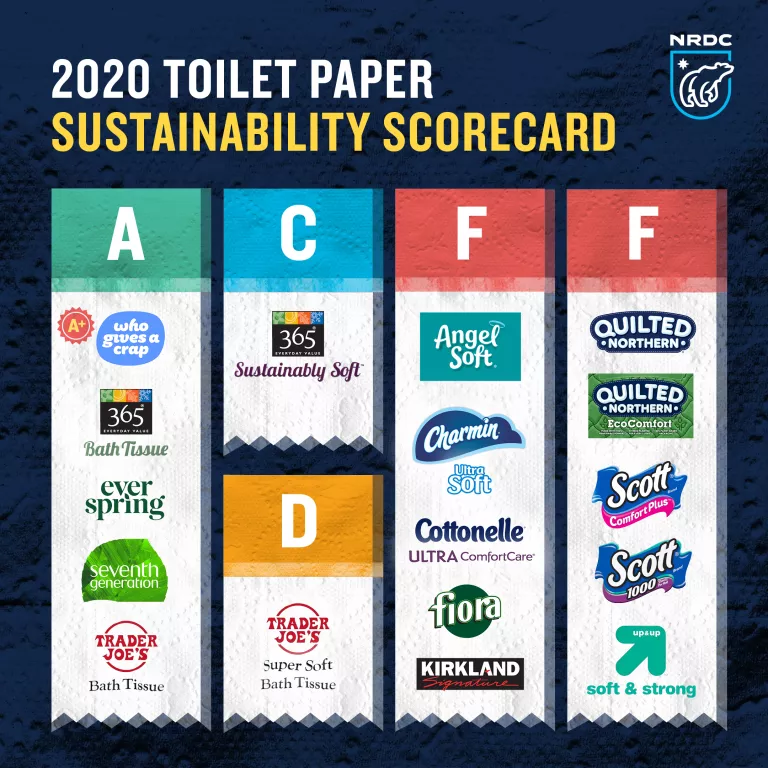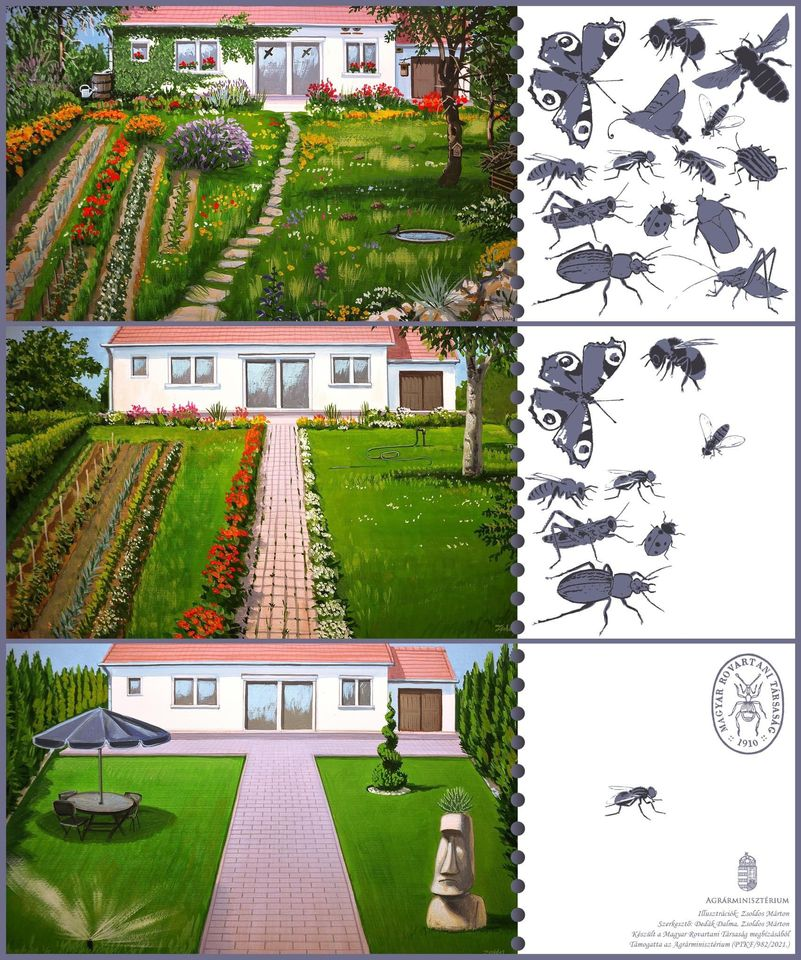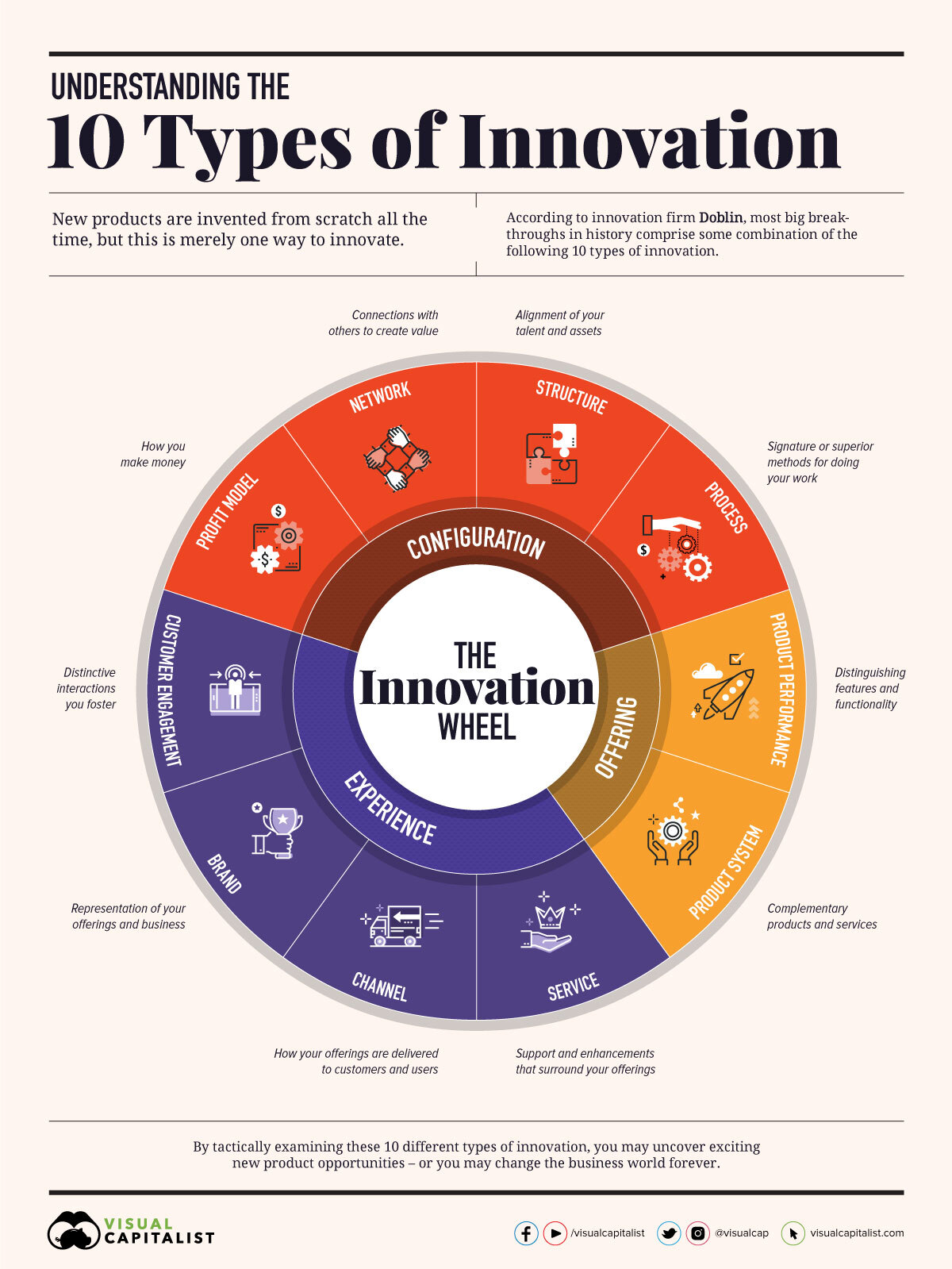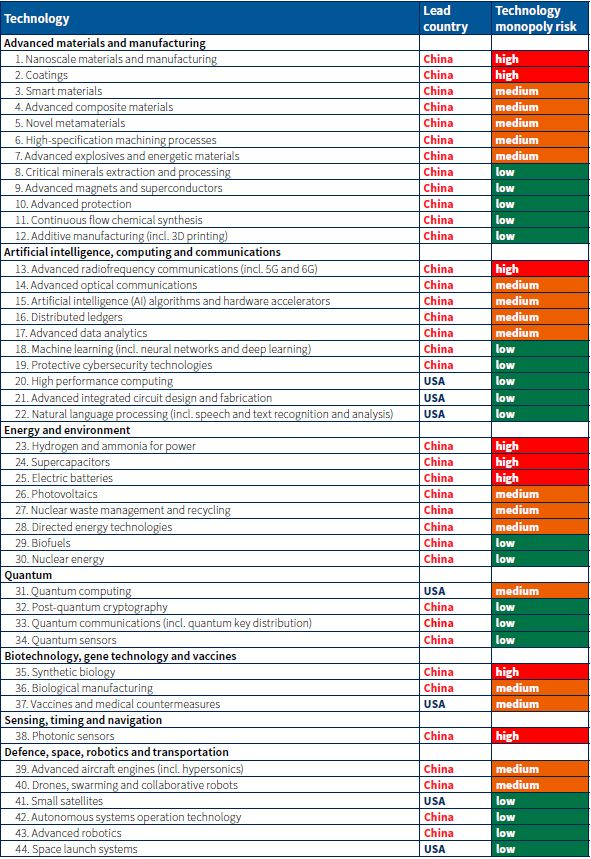Consumption Week 11
My notes from some of the media I consumed this week.
Contents
Energy, Climate, and the Future
This Farm Aims to Use Salmon Waste to Boost the Growth Of Kelp
https://www.trendhunter.com/trends/aquaculture-farm
- The benefit of this particular setup is that the feces and waste produced by salmon will be available to the kelp, with the resulting uptake in nutrients helping the seaweed to grow in a faster and healthier manner. Not only will the kelp be available for use to enhance the nutrients of livestock feed for cattle, but some of its byproducts can actually be of use in salmon feed, making for a mutually beneficial arrangement.
Charted: The Global Plastic Waste Trade
https://www.visualcapitalist.com/cp/charting-the-movement-of-global-plastic-waste/
| Rank | Country | Exported Plastic Waste (2020) |
|---|---|---|
| 1 | Germany | 853,860,858 kg |
| 2 | Japan | 820,742,495 kg |
| 3 | USA | 624,511,072 kg |
| 4 | United Kingdom | 560,986,540 kg |
| 5 | Netherlands | 413,233,255 kg |
Germany, which is the world’s largest exporter of plastic scraps and waste at 854 million kilograms, relies primarily on the Netherlands, Poland, Austria, Switzerland, Türkiye, and Malaysia to manage this plastic waste.
| Rank | Country | Imported Plastic Waste (2020) |
|---|---|---|
| 1 | Malaysia | 715,274,628 kg |
| 2 | Türkiye | 619,287,422 kg |
| 3 | Germany | 567,239,848 kg |
| 4 | Viet Nam | 440,706,678 kg |
| 5 | Netherlands | 417,312,448 kg |
In pursuit of lunar oxygen, firm discovers recipe for net-zero steel
https://interestingengineering.com/science/lunar-oxygen-recipe-carbon-free-steel
- Producing iron, naturally present in the Earth as iron oxides, is the first step in manufacturing steel. Conventionally, coal and iron oxides are combined in scorching blast furnaces to bond oxygen molecules with carbon molecules. During this process, the bioproduct is carbon dioxide (CO2), which we all know to be a significant greenhouse gas.
- Helios has found that sodium, used to manufacture table salt, may be utilized in place of carbon-rich coal. They assert that sodium oxide is created when sodium molecules interact with the oxygen molecules in iron ore. The oxygen is then released into the atmosphere after being split again into sodium and oxygen. After that, the sodium can be reused.
Toilet Paper and Climate Change: NRDC’s Updated “Issue With Tissue” Ranks Brands on Sustainability
- US companies, although I recently found out Trader Joe’s is owned by Aldi. Either way, something to consider.
- See also: One of the best South Park episodes in a while - https://southpark.fandom.com/wiki/Japanese_Toilet
That rocks: Study estimates novel rock crushing process could capture 0.5 per cent of global CO2
- More than 50 billion tonnes of rock are crushed every year worldwide in sectors for use in the construction, mining, and infrastructure industries, which currently account for around 11 per cent of global carbon emissions.
- Using CO2 gas to crush rocks to make aggregate materials, which it explains holds the potential to trap some of the carbon dioxide within the rocks through the process.
- “If the technology was adopted worldwide in aggregate production, it could potentially capture 0.5 per cent of global CO2 emissions - 175 million tonnes of carbon dioxide annually,”
Gardens vs Nature
Politics, Economics, Business, and Culture
10 Types of Innovation: The Art of Discovering a Breakthrough Product
- Based on the book “Ten Types of Innovation: The Discipline of Building Breakthroughs”
- Link to a PDF summary of tactics for each type is broken, but thanks to the Internet Archive it still exists: https://web.archive.org/web/20200429223947/https://doblin.com/dist/images/uploads/TenTypesInnovation.pdf
How the Housing Market Screwed Young People
- House prices have risen faster than wages, and rents are higher than mortgages. So much is going to rent then it’s impossible to buy a house. Lack of housing is not the problem. Only option is inheritance.
Why Is the European Economy Sinking?
- Zombie companies: unproductive, inefficient, lacking innovation.
- Banks are scared of zombies defaulting on their loans, so lend them more.
- Governments are scared of zombies failing and increasing unemployment, so support them.
